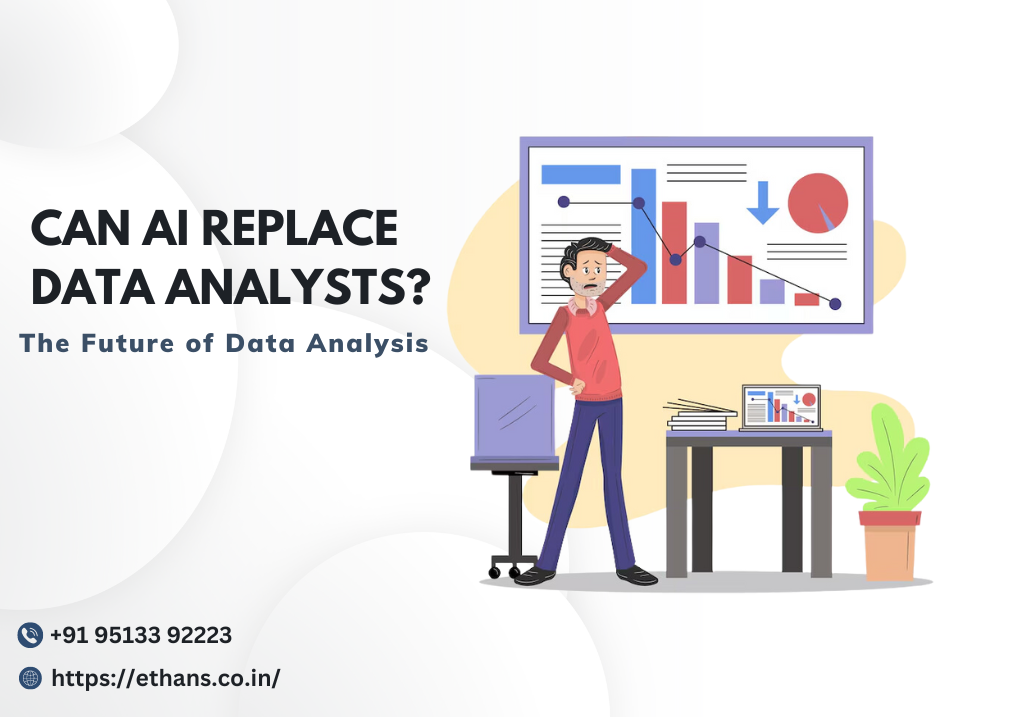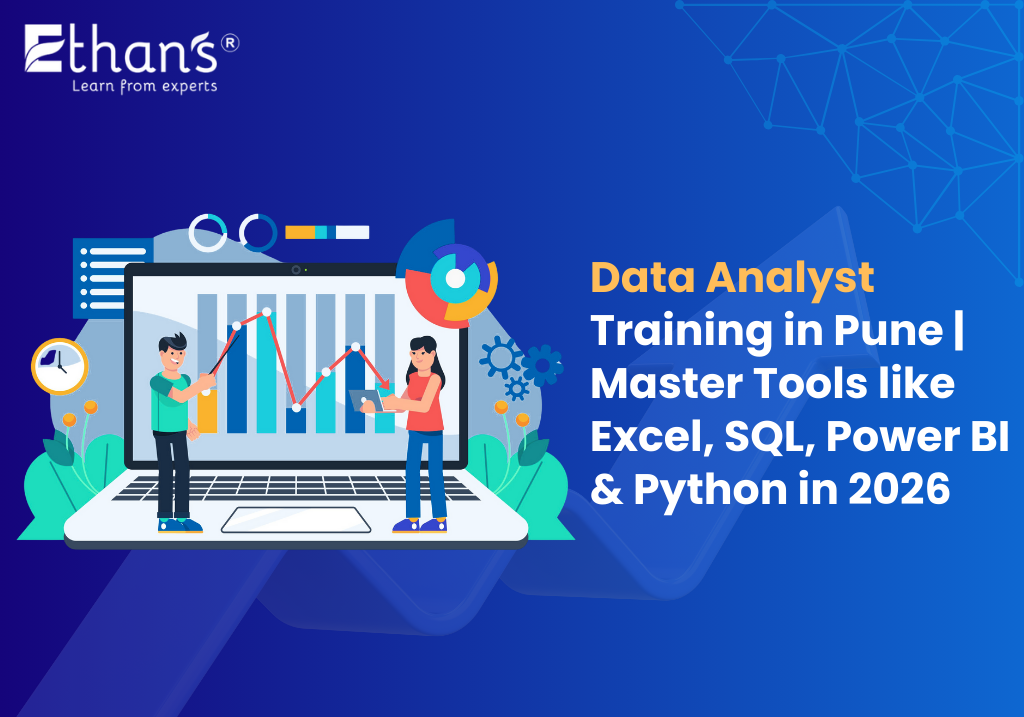Have you ever wondered if AI could take over the jobs of data analysts? With the rapid rise of technology, it’s a question on many minds. Let’s dive in and see what the future might hold!
Before discussing whether artificial intelligence (AI) will replace data analysts, it is important to understand what AI is. A technology known as artificial intelligence, or AI, is capable of carrying out any task that humans have ever completed. For example, language translation, speech recognition, cognitive processes, visual perception, and decision-making, among many more.
It is hard not to value the impact of artificial intelligence on human life these days. Artificial intelligence has an impact on every field, industry, and sector. Data analysts are not left to shoulder the entire weight of these effects, which can be both beneficial and detrimental.
Given the significance of records in a cutting-edge environment, it would no longer be justified to say that statistics analysts will remain unaffected. Shortly, AI is anticipated to continue having an impact on information evaluation. This is due to the reality that once facts become more varied, AI may be heavily utilized to investigate and examine them. Strong net connections, the enlargement of connected devices, and ever-faster laptop processing have all contributed to this. Each of these made a full-size contribution to the growth of data series and analysis.
What role does AI play in this?
AI restricts human effort with the use of technology and computer science. In addition, data computations and programming analysis are now even easier to obtain than they were for data analysts. In a similar vein, AI’s insights, acquired from the evaluation of large statistics sets, are some distance more effective than an expert’s. Therefore, synthetic intelligence is being utilized in some capacity via every enterprise nowadays. Unquestionably, one advantage of AI is its capability to evaluate widespread amounts of information, spot styles, and provide effects in forms, reports, and papers that are easy for human beings to recognize.
Can Humans Be Replaced by Technology?
Going back hundreds of years to a time when people did everything by hand, this has always been a topic of debate. When they learned that technology might assist them, how would they have felt? But the actual world is not at all like that. If there are technical developments that shut one door, then those developments alone have given rise to additional options.
There are a lot of examples that back up this assertion.
For example, digital publications took the role of printers, creating a chance for content writers. In a similar vein, mobile banking apps took the job of bank tellers, but professionals in the banking industry improved their abilities and became data analysts.
But the most important query is: Will this trend continue?
Will AI increase opportunities while replacing data analysts?
Or will these two complement one another?
How Do Data Analysts and Artificial Intelligence Work Together?
Rather than debating whether AI will take the role of data analysts, we ought to focus on how AI can support them. Now let’s examine them.
Data analysts may benefit greatly from AI as it gives them all the tools they need to swiftly and effectively evaluate large amounts of data. AI is also a great tool for finding patterns in otherwise unstructured data and extracting insightful information from it. Thanks to AI-driven automation, statistics analysts can also now recognize crucial obligations rather than performing tedious hard work all day.
Errors have decreased once automation became used, producing more correct findings and results. Furthermore, AI provides a manner to recognize information without the requirement for earlier know-how or information in information analytics.
Furthermore, fact analysts may also hire a plethora of AI gear to their benefit.
What Impacts Might AI Have on Data Analysts?
Questions like “Which roles and obligations of a statistics analyst will the AI update?” need to be asked as opposed to focusing on whether or no longer AI will update data analysts. So permit’s tackle it from a distinctive angle. As a statistics analyst, you’ve got numerous obligations to fulfill. While some will be cognizant of static desires, others will do non-task-oriented tasks.
Activities like acquiring datasets, employing tools to finish obligations, and reworking facts are all part of the static standards. Such individuals or jobs don’t demand a tremendous deal of domain knowledge or industrial acumen. It’s also more of a back-of-the-scenes process.
These are the sorts of obligations that AI can with ease take. All of these jobs can be effortlessly finished by using quite a few AI tools, including Open AI’s code interpreter. All you need to do is publish the statistics and teach this AI technology to carry out the identical assignment as a statistics analyst. However, the probability of an AI replacing you on your function is a whole lot decreased if you are a facts analyst who is going above and beyond the call of obligation. You’ll be extra involved with the profitability and outcomes of your company, which can be things that AI can help with but can not do on its own.
In summary, whether AI replaces you in your work as a data analyst will rely on the type of responsibilities you are managing. Artificial intelligence (AI) tools can quickly replace you if all you are doing is building dashboards without offering any insightful information.
But, there is no substitute if you build that dashboard and provide insightful analysis and forecasts on how the company might grow. For this reason, using generative AI tools like ChatGPT is essential if you want to increase your performance and efficiency when solving challenging SQL queries. AI tools may also be used to learn new things and increase your knowledge.
What AI Restrictions Apply to Data Analysis?
While artificial intelligence (AI) has several advantages for data processing, it also possesses significant drawbacks. The creation of codes and machine learning algorithms is the first restriction. A human brain and a data analyst are required to develop all of these; a computer cannot do it. It still takes a human to enter the precise parameters and queries, even with the OpenAI Code Interpreter Plugin that can assist with code creation.
Furthermore, there may be no warranty that those gadgets will constantly produce correct and straightforward outcomes. You will for that reason continuously want an expert who can shape arbitrary conclusions, pose perceptive queries, and weigh ethical considerations. Moreover, AI technologies might not be capable of engaging with stakeholders or percentage discoveries. Artificial intelligence (AI) can automate monotonous jobs, however, it isn’t always a choice for a human facts analyst’s creativity, empathy, or intuition. Discover the future of data analysis and enhance your skills with Ethans Tech’s Data Analytics course today!





